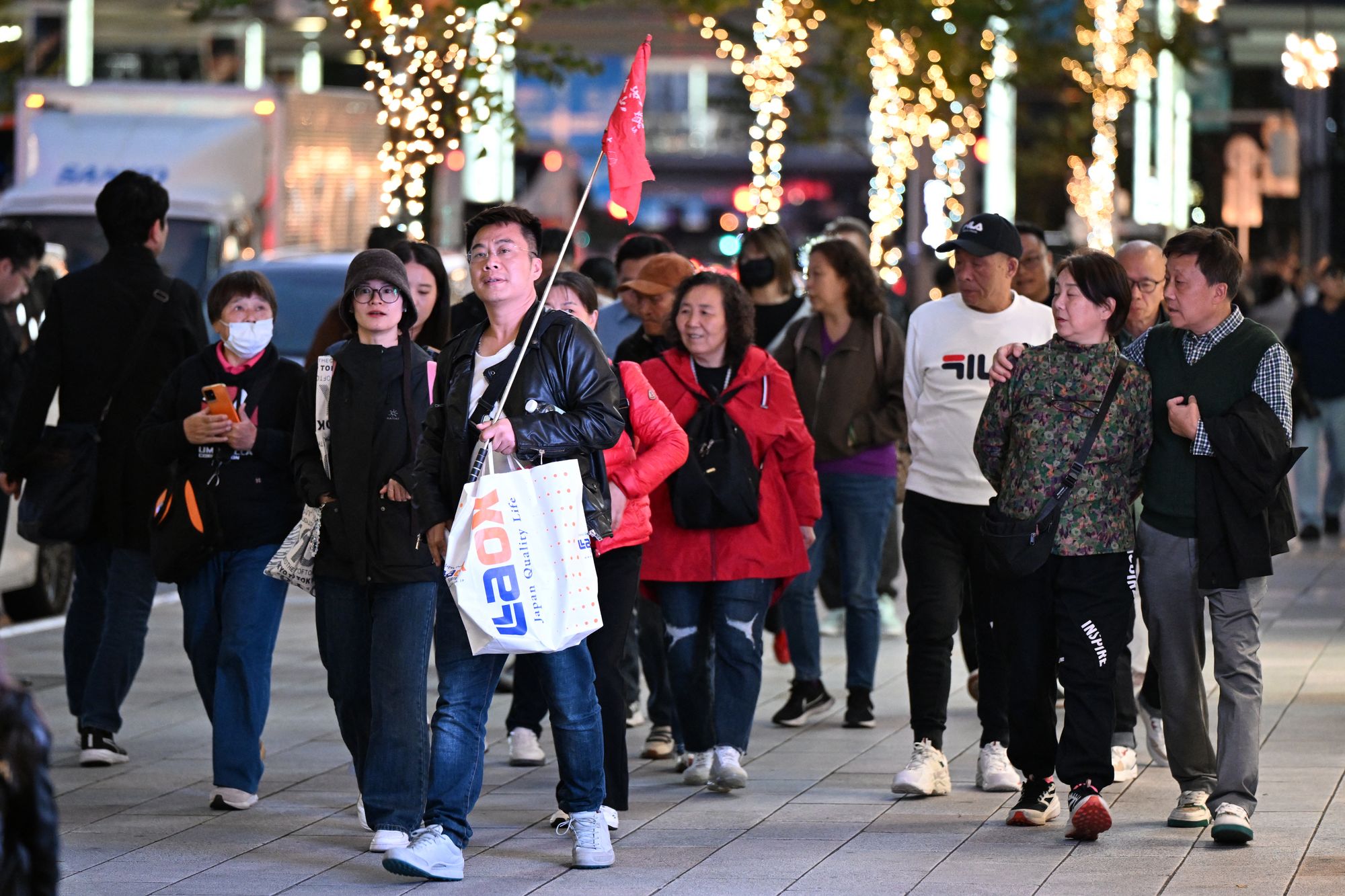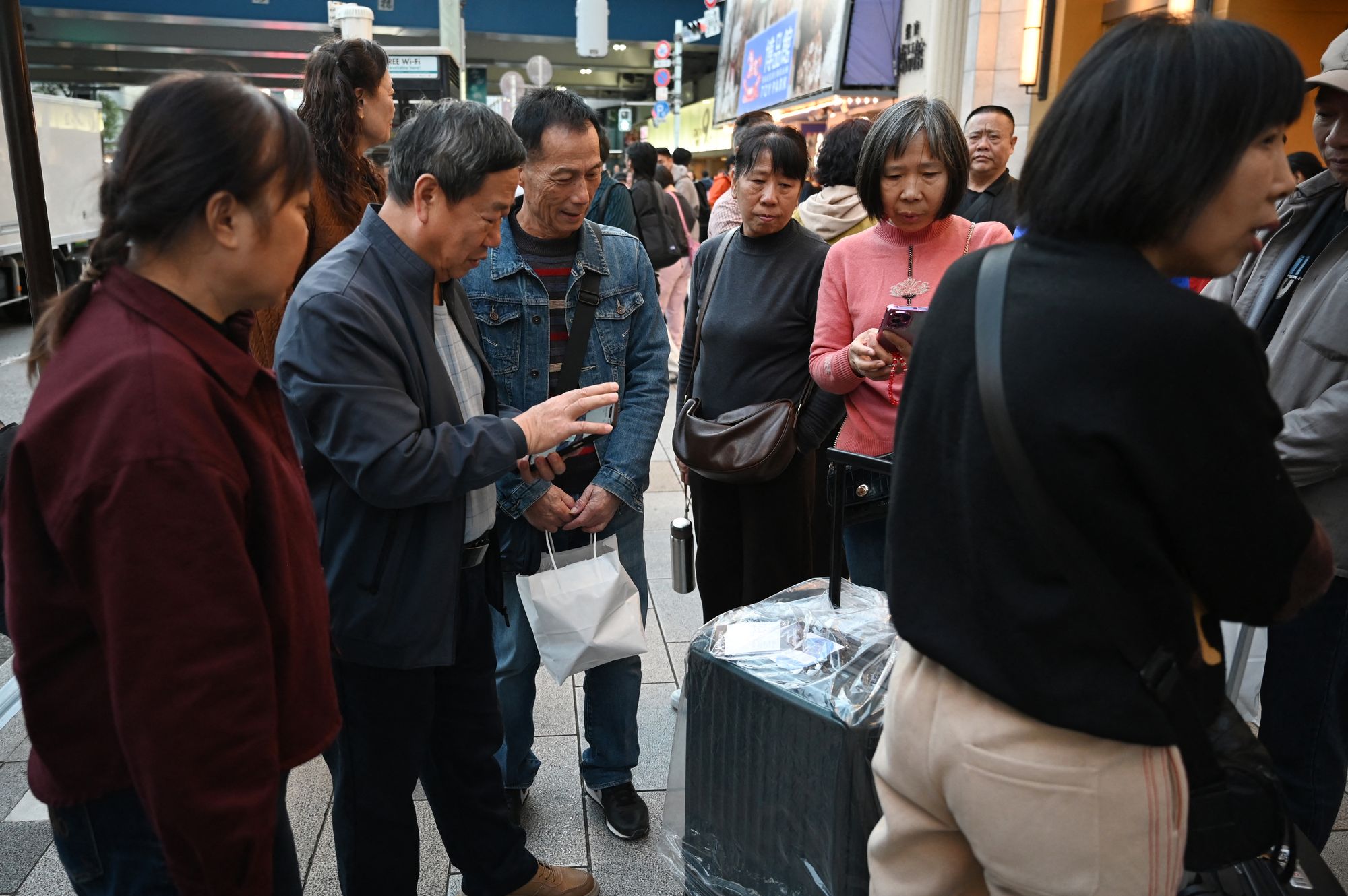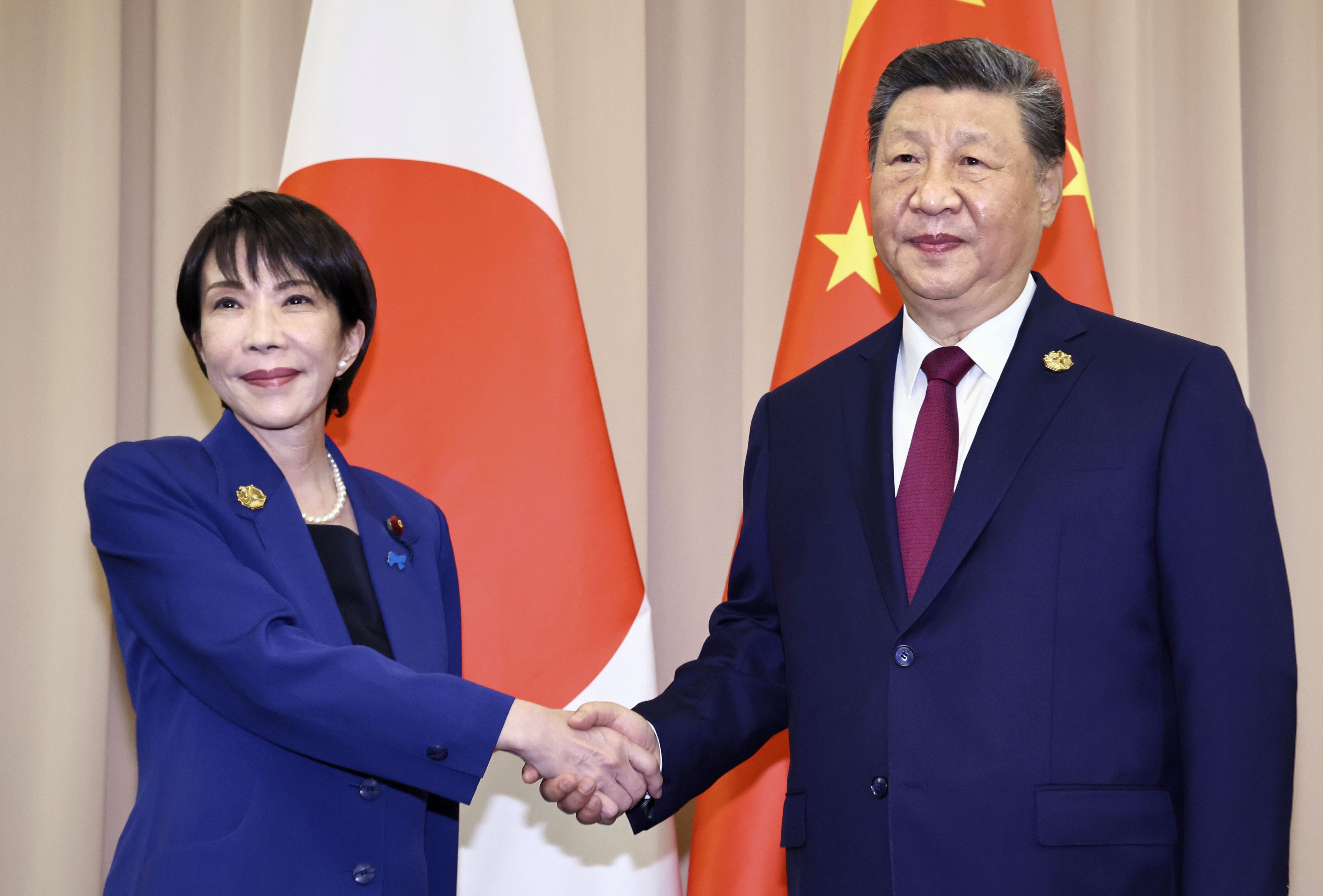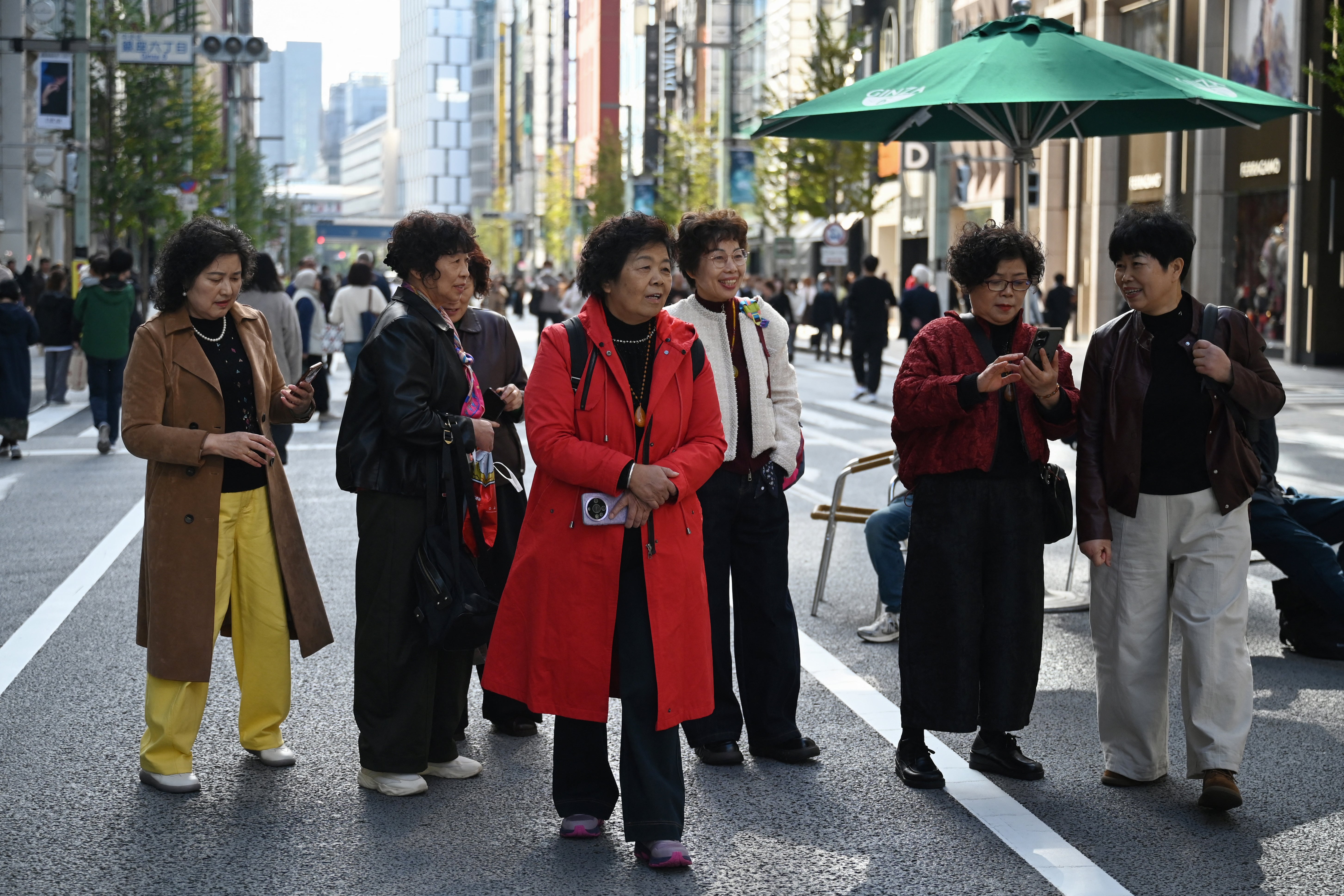Japan has urged its citizens in China to exercise caution as the diplomatic row sparked by prime minister Sanae Takaichi’s remarks about possible military intervention in the Taiwan Strait continues to deepen.
Japan’s embassy in Beijing advised its citizens to avoid crowds, stay alert to their surroundings, and not approach anyone who appeared “even slightly suspicious”, warning that the diplomatic tensions had fuelled hostile commentary against the East Asian country in Chinese state media.
The advisory was issued even as a senior foreign ministry official, Masaaki Kanai, arrived in Beijing for talks to de-escalate the row.
He was expected to meet his Chinese counterpart Liu Jinsong on Tuesday and likely signal that the new prime minister’s remarks should not be regarded as a shift in the security policy of his country.
He was also likely to urge Beijing to refrain from actions that could further damage the bilateral relationship.
The diplomatic dispute erupted after Ms Takaichi told lawmakers that a Chinese attack on Taiwan could amount to a threat to Japan’s survival, a scenario that would warrant a military response under national law.

The remarks deviated sharply from Tokyo’s longstanding policy of avoiding explicit discussions of such scenarios, given China’s sensitivity to any suggestion of foreign intervention in the Taiwan Strait.
After the dispute erupted, China advised its own citizens to avoid travelling to Japan, a significant blow to an economy heavily reliant on Chinese visitors, who make up nearly a quarter of all inbound tourists, according to government data.
A major state-run travel agency in Beijing has already halted trips to Japan, suspended visa services, and begun refunding tour packages at no cost, Kyodo News reported.
The unnamed agency has cited “the current situation faced by the two countries” as the reason.
Chinese airlines have seen unprecedented cancellations, with analysts estimating that nearly 491,000 bookings have been withdrawn since Saturday, according to the South China Morning Post.
Chinese carriers offered full refunds after Beijing issued its advisory for Japan, causing cancellations to outpace new bookings.

Aviation analysts said these losses, mainly from round-trip ticket cancellations, could run into billions of yuan, with flights between Shanghai and major Japanese cities the hardest hit.
Chinese airlines dominate this route, industry experts note, meaning they will shoulder most of the financial damage.
Japan’s travel and retail sectors are already feeling the strain. Cosmetic giant Shiseido’s shares fell by nine per cent, while Fast Retailing, which is the owner of Uniqlo, fell by more than four per cent. The department store group Takashimaya saw its shares go down by five percent, AFP reported.

Hotels were starting to receive cancellations from Chinese corporate clients, though some chains reported limited impact.
The diplomatic fallout has also hit the entertainment sector.
Chinese distributors have suspended screenings of many Japanese films, describing the decision as a prudent response to the shift in “audience sentiment”, Japan Today reported.
Japan’s economic security minister warned that over-reliance on China carried risks for supply chains and tourism.
“If we rely too heavily on a country that resorts to economic coercion the moment something displeases it, that creates risks,” Kimi Onoda said.
Trade minister Ryosei Akazawa said China had not yet changed its export controls on critical minerals.
Business leaders, meanwhile, urged calm. After meeting Ms Takaichi, Keidanren chair Yoshinobu Tsutsui said that “political stability is a prerequisite for economic exchange”.
The Chinese foreign ministry defended its travel advisory as “completely reasonable”, citing “extreme and threatening remarks” posted against the country online and from “right-wingers” in Japan.

Japan, meanwhile, has reminded its citizens in China to respect local customs, avoid travelling alone, and take particular care when accompanied by children.
Mr Kanai, the foreign ministry’s Asia and Oceania chief, was expected to tell Mr Liu that Japan’s security policy remained unchanged.
“Various channels of communication are open,” Japan’s chief cabinet secretary said, adding that Tokyo had made a “firm request” that China take “appropriate steps”.
China has ruled out a meeting between premier Li Qiang and Ms Takaichi on the sidelines of this week’s G20 summit in South Africa, instead demanding that she retract her “wrongful” remarks, Reuters reported.
The diplomatic row is unfolding against a backdrop of longstanding territorial and strategic tensions.
Taiwan lies just over 110km from Japan’s westernmost island of Yonaguni and sits astride major sea lanes essential to the country’s energy imports.
On Sunday, Chinese coast guard ships sailed around a group of East China Sea islands controlled by Japan but claimed by China. The Japanese coast guard said it drove the Chinese ships away.
The US hasn’t formally recognised the islands, known as Senkaku in Tokyo and Diaoyu in Beijing, as Japanese sovereign territory, but has said since 2014 it would be obliged to defend them under the Japan-US security treaty in the event of a Chinese attack.
Japan scrambles jets after ‘Chinese drone’ detected near southern island off Taiwan
China basks in the spotlight at Cop30 as Trump forces the US to stay away
China sends coast guard vessels to Senkaku Islands amid growing tensions with Japan
China tells citizens not to visit Japan as Taiwan row escalates
The German prisoner of war who gave Japan one of its most beloved cakes
Japan’s new prime minister sleeps two hours a night and asks aides to meet at 3am







